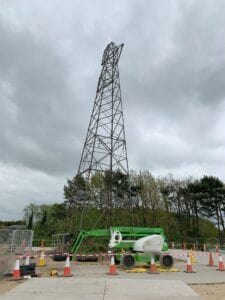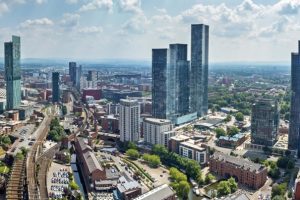NW economic outlook marred by uncertainty and risks of hard Brexit

The North West economy is likely to shrink by 7.6% this year, according to KPMG UK’s latest quarterly economic outlook.
And, despite some encouraging recent data, the continuing impact of the COVID-19 virus means the economy is unlikely to be able to fully restart until a vaccine or effective treatments for the virus are available.
Four alternative scenarios were considered for the timing of the recovery, based on potential different dates of the pandemic being eradicated in the UK.
KPMG’s main scenario assumes that a vaccine will be available from July 2021, enabling all social distancing measures to be removed and pandemic-related uncertainty to dissipate by the following month.
However, the North West could start 2021 with another negative shock to the economy due to the end of the transition period with the EU, with GVA (Gross Value Added) contracting at least during the first quarter of the year.
Based on the same scenario, the UK’s economy is forecast to contract by 7.2% in 2020, rising by 2.8% in 2021.
Economic recovery next year could be hampered by Brexit.
KPMG’s forecasts assume that a deal will be reached by the end of this year and this will enable the UK to trade with the EU with no tariffs or quotas and will cover some services.
However, even without tariffs, some additional trade friction may not be avoided due to the need for customs and other inspections.
Therefore, exports are expected to fall back at the start of next year, despite some recovery in many of the North West and the rest of the UK’s export markets.
An end to the transition period with no deal, or with a more limited trade deal, would see a much weaker economic recovery next year.
Jennifer Lee, office senior partner for KPMG in Liverpool, said: “Our latest economic modelling highlights the scale of the challenges ahead for the North West as it faces the most severe economic downturn in modern times, with no clear end to the current crisis.
“Considerable uncertainty remains around the timing of a vaccine which will impact the timing and speed of the recovery, as well as the extent of any permanent damage to the economy.
“That said, there are some tentative signs of a pick-up in activity and we expect to see a partial recovery in the second half of this year as the gradual easing of restrictions brings light to more corners of the economy.
“However, a full resumption of activity is unlikely until a vaccine or effective treatments for COVID-19 is found.”
She added: “The pandemic will leave a lasting mark on the economy.
“We all need to adjust to a new future, not just to the current recession, and make the most of the hand we’ve been dealt to build something better for us all.
“That could be doing more to help the environment, investing more in our essential workers, or matching our universities with local businesses to improve regional productivity. If we get this right, the future may well be a lot brighter.”
The report also says that, despite heavy support from the Government’s Job Retention Scheme (JRS), the current crisis is having a material impact on the labour market.
Lockdown restrictions imposed to combat the pandemic have created a weaker economic environment which could see the unemployment rate averaging 8.6% this year and 11% in 2021.
While the JRS could help shield millions of workers from redundancy, further job losses during 2020 may be inevitable as the economy adjusts to the new economic environment.
In addition, it is likely that the scheme will end before employers can absorb all furloughed workers, triggering a fresh spike in unemployment later this year.








